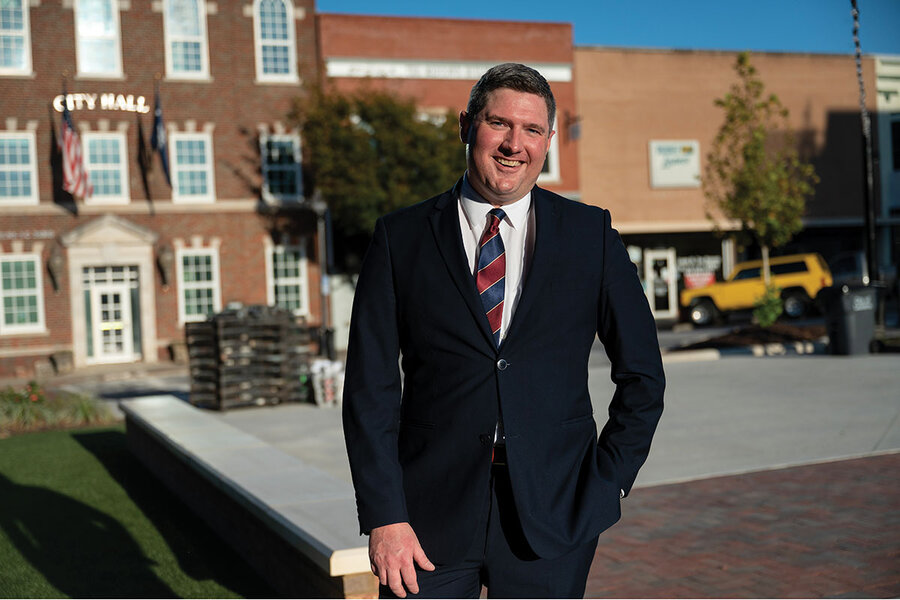Where political orthodoxies falter
Loading...
The issue of LGBTQ+ rights is hard-fought ground in the United States. Rising support of same-sex marriage remains one of the most dramatic shifts in American public opinion in recent history. Some 25 years ago, only 27% of Americans backed same-sex marriage, according to Gallup. Now, 71% do – meaning nearly half the country shifted its views in little more than a generation.
Yet the issue of LGBTQ+ rights remains one of the most potent topics in the culture wars. Some 60% of Americans say shop owners should not have to provide services if doing so would signal support of LGBTQ+ policies they oppose, the Pew Research Center finds. And while 64% of Americans oppose discrimination against transgender individuals, there are sharp differences on the issue of gender-
affirming care for minors. A strong majority of Democrats support such care; a strong majority of Republicans oppose it.
Within such a context, the cover story for the Oct. 30 print edition comes as something of a corrective. LGBTQ+ issues are supposed to divide Americans. Or so the general political narrative goes. Yet our Patrik Jonsson lays out a different scenario in a story that’s full of heart and humanity. He looks around the South – the conservative bulwark of the nation – and finds gay candidates for political office thriving.
We have a saying at the Monitor: The truth is in the nuance. Any story that paints in too-bold colors, suggesting the answer is all this or all that, is probably overly simplified. Truth generally emerges from the grays, where political orthodoxies falter and humans make complicated decisions in a complicated environment. Patrik’s story is no different. And in its nuance, it confounds stereotypes about the South.
This is not a blue-state vision of equality. Yes, gay candidates are out, sometimes campaigning with their spouses. But being gay is not a selling point – not quite "don’t ask, don’t tell," but not too far off, either. In some ways, that can be freeing, the candidates say – their lives are not distilled to one variable of the many that make up their identity. But it can also be hard when that part of your identity is accepted, though not quite embraced. Moreover, the growing acceptance of gay and lesbian Southerners does not yet seem to extend to transgender Southerners – at least to the same degree.
Yet for the politicians in Patrik’s story, there is a common thread: a sense of accomplishment and gratitude for progress. They can do what they love while not hiding who they are. And that, it seems, is the note so often omitted in the national conversation. That even as people acknowledge differences as Republicans and Democrats – from LGBTQ+ rights to immigration to abortion – everyone can find powerful connections as neighbors and communities. And that is the surest way to find paths forward together.






